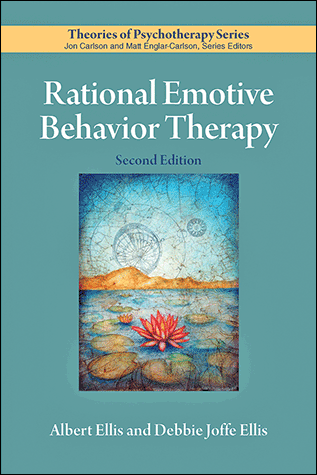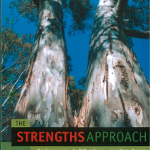Created in the 1950s by the legendary Albert Ellis, rational emotive behaviour therapy (REBT) teaches clients to challenge their irrational thinking.
REBT is based on the simple idea that it is not external circumstances that make a person happy or unhappy, but rather internal thoughts about events or oneself. Thinking, feeling, and behaviour are seen as linked and influencing one another.
Because changing one’s thinking is usually the simplest tactic in a given situation, it tends to be the focus of therapy, alongside the humanistic core REBT philosophies of unconditional self-acceptance, unconditional other-acceptance, and unconditional life-acceptance.
This essential primer, amply illustrated with case examples featuring diverse clients, is perfect for graduate students studying theories of therapy and counseling, as well as for seasoned practitioners interested in understanding how this approach has evolved and how it might be used in their practice.
This second edition includes updated clinical research, as well as a thorough examination of the important distinctions between REBT and cognitive-behaviour approaches.
Contents:
- Series Preface
- How to Use This Book With APA Psychotherapy Videos
- Acknowledgments
- Introduction
- History
- Theory
- The Therapy Process: Primary Change Mechanisms
- Evaluation
- Future Developments
- Summary
- Glossary of Key Terms
- Suggested Readings and Videos
Author Bio:
Albert Ellis, PhD, received his MA and PhD degrees in clinical psychology from Columbia University. Dr. Ellis was chief psychologist of the state of New Jersey and adjunct professor at Rutgers and other universities. He practiced psychotherapy, marriage and family counseling, and sex therapy for more than 65 years. He was the founder of rational emotive behaviour therapy (REBT), the first of the cognitive behaviour therapies, as well as the Albert Ellis Institute in New York City. Albert Ellis died on July 24, 2007.
Debbie Joffe Ellis is a licensed psychologist (Australia) and a licensed mental health counsellor (New York). She is an adjunct professor at Columbia University Teachers College in the Department of Clinical and Counseling Psychology. She has a doctorate in alternative medicine from the Indian Board of Alternative Medicines in affiliation with the World Health Organization. She runs a private practice and delivers lectures, workshops, and seminars throughout the United States and the world.





